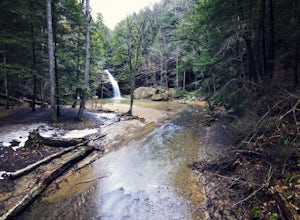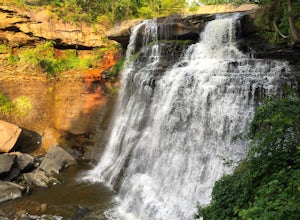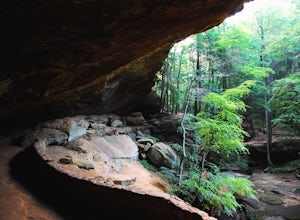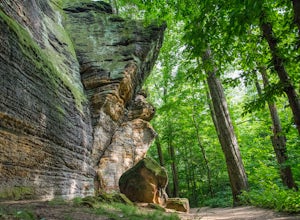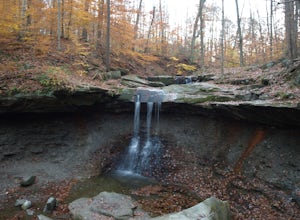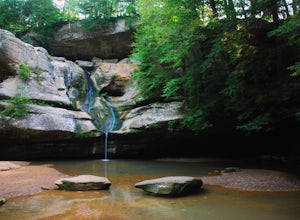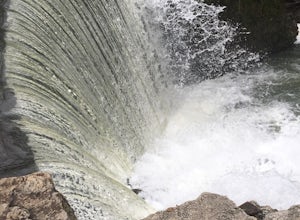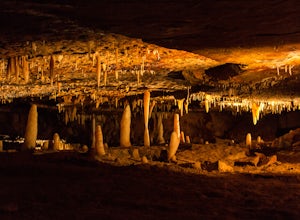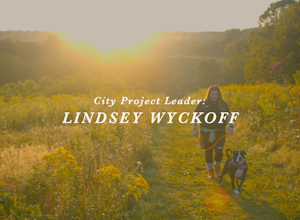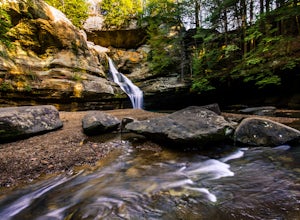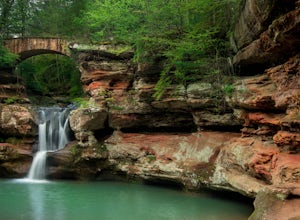Ohio
Top Spots
Hike & Camp in Hocking Hills, Ohio
Logan, Ohio
4.9
3 mi
If you find yourself in Ohio, you must stop in Logan and visit the Hocking Hills. This place seems to consistently find itself on lists for the best hiking in the country - and for good reason. The forest and state park is vast, and it includes Old Man's Cave, Ash Cave, Cedar Falls, Rock House, the list goes on. Visit the Hocking Hills and Parks websites to plan out where you want to hit, and g...
Brandywine Falls
Peninsula, Ohio
4.5
3.66 mi
/ 600 ft gain
CVNP only has one designated camping area with five sites, located behind the Stanford House. The Conservancy for CVNP runs the reservations, and they fill up quickly so plan ahead (I made my reservation about 2 months in advance, and it was the earliest I could get in). There is a parking lot at the Stanford House, but backcountry campers can't leave their cars there overnight, so you can park...
Old Man's Cave Loop
Logan, Ohio
4.5
0.63 mi
/ 102 ft gain
Take the Rim Trail in Hocking Hills State Park, which descends into the deep gorge and takes you alongside a stream as you head towards a number of cascades and interesting rock faces.
Rim Trail can be linked to Cedar Falls, as well, or from the Upper Falls you can take Grandma Gatewood Trail for a 6 miles trail through the park. This is the site of the annual Hocking Winter Hike in January, w...
Ledges Trail
Peninsula, Ohio
4.8
2.34 mi
/ 210 ft gain
Drive and park in the area shown on the map. If you are in the parking lot near a big open field, you made it to the right place. There are two ways to take the trail from here, south or north. I suggest that you go North first (towards the shelter area). Follow this trail into the woods and it will take you down and alongside the ginormous rock faces. In the summer time it can get chilly ...
Blue Hen Falls
Peninsula, Ohio
4.6
2.87 mi
/ 518 ft gain
Within Cuyahoga Valley National Park lies an amazing little waterfall known as Blue Hen Falls. There are few parking spots at the given address but there is an overflow lot right across the street. After parking you will descend down a semi steep hill and arrive at a bridge. Once you cross the bridge you will see to your left a trial that leads to the Buckeye Trail and to your right the falls. ...
Cedar Falls
Logan, Ohio
4.3
0.38 mi
/ 56 ft gain
Located on Queer Creek in Hocking Hills State Park, the popular 50 ft-Cedar Falls still tends to be less crowded than Old Man's Cave. There are scenic views to be had year-round off of the stream-lined path, starting from the lower parking lot off of SR 374.
For quicker access to the falls, start at the upper parking lot, nearby. A section of stairs, called the Democracy Steps, lead down to th...
Hike to Cedar Cliff Falls
Cedarville, Ohio
4.4
2.6 mi
/ 250 ft gain
Starting from the Indian Mound Reserve parking lot, follow the private drive back until the signs indicate to follow the trail through the woods to the right, about 1/4 mile. Make sure you stay right of the painted yellow line on the road, trespassers on the private land surrounding the park are not tolerated. From there, the trail winds for 1/3 of a mile until the trail forks into two distinct...
Explore Ohio Caverns
West Liberty, Ohio
4.8
1 mi
/ 80 ft gain
Ohio Caverns is a locally owned private establishment with guided tours through the cave system that lies beneath the rolling farmland of Central Western Ohio. The caves were formed by the dissolution of the Devonian limestone bedrock below, giving way to some of the most phenomenal cave features in the state, including the Crystal King, a roughly 400 lb stalactite that is the largest in Ohio.A...
Hike to the Elusive Corkscrew Falls
Logan, Ohio
2.8
1 mi
/ 35 ft gain
I like to describe this waterfall as the "elusive" corkscrew falls. A couple years ago, only one or two people had blogged on the internet about these falls. They were not super, descriptive details, so most of the time I wondered around till I found the trail. There is no big official park sign that says the trail starts here.
Here are the best directions on how to hike to the coolest falls in...
Places to stay
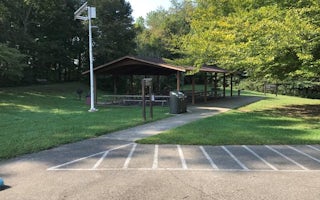
Bainbridge, Ohio
Paint Creek Dam Site
Overview
Paint Creek Dam Site Area, located on Paint Creek Lake, offers great opportunities for outdoor recreation in the Scioto area of ...
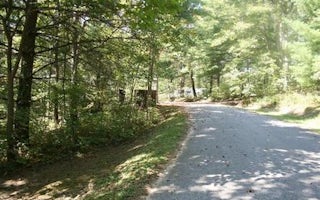
Pedro, Ohio
Iron Ridge Lake Vesuvius
Overview
Iron Ridge is one of two campgrounds in the Vesuvius Recreation Area in southeastern Ohio's Wayne National Forest. Iron Ridge of...
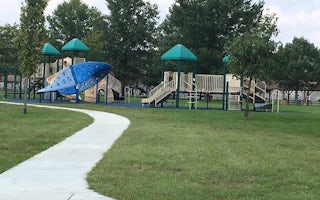
Galena, Ohio
Alum Creek Below Dam Area
Overview
Alum Creek Lake is located in Delaware County, Ohio, just 30 minutes north of Columbus. The lake provides an ideal location for ...
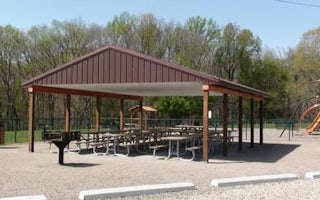
Zanesville, Ohio
Dillon Lake Group Picnic Shelter
Overview
Dillon Lake is approximately six miles northwest of Zanesville, Ohio, and twenty miles east of Newark, Ohio. Access to the lake ...
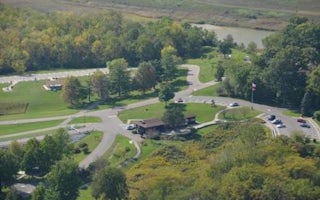
2630 Croft Road
Cj Brown Dam And Reservoir Dam Site (Oh)
Overview
C.J. Brown Reservoir is located in west-central Ohio, two miles northeast of Springfield; thirty-five miles northeast of Dayton,...
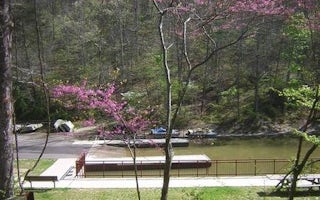
Pedro, Ohio
Lake Vesuvius Recreation Area
Overview
Lake Vesuvius Recreation Area, named for the old Vesuvius iron furnace, is the Wayne National Forest's premier developed recreat...
Guides and stories
Quick links
- The best hiking trails in Ohio
- The best backpacking in Ohio
- The best camping in Ohio
- Top adventures in Ohio
More Ohio destinations
Community
© 2023 The Outbound Collective - Terms of Use - Privacy Policy
